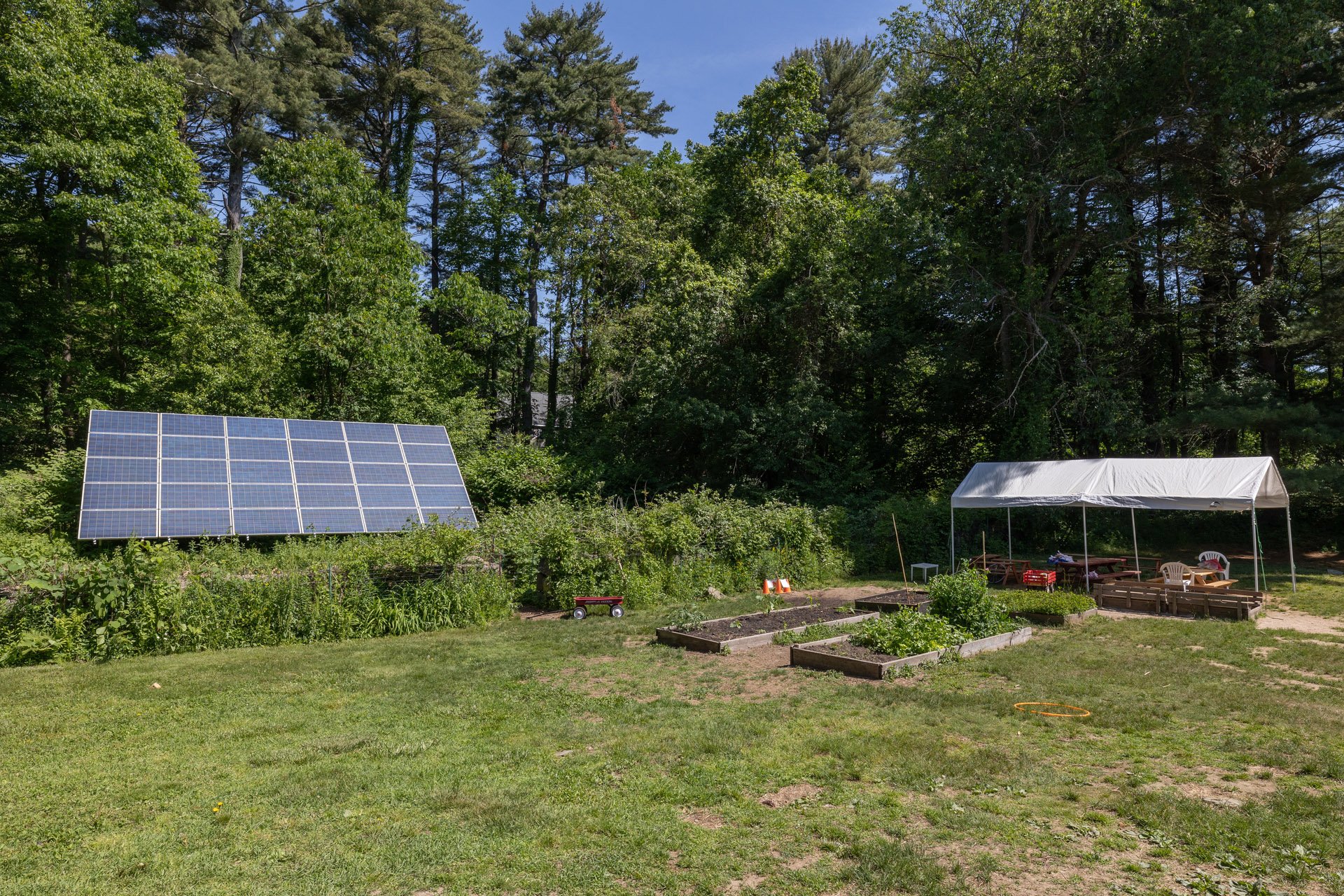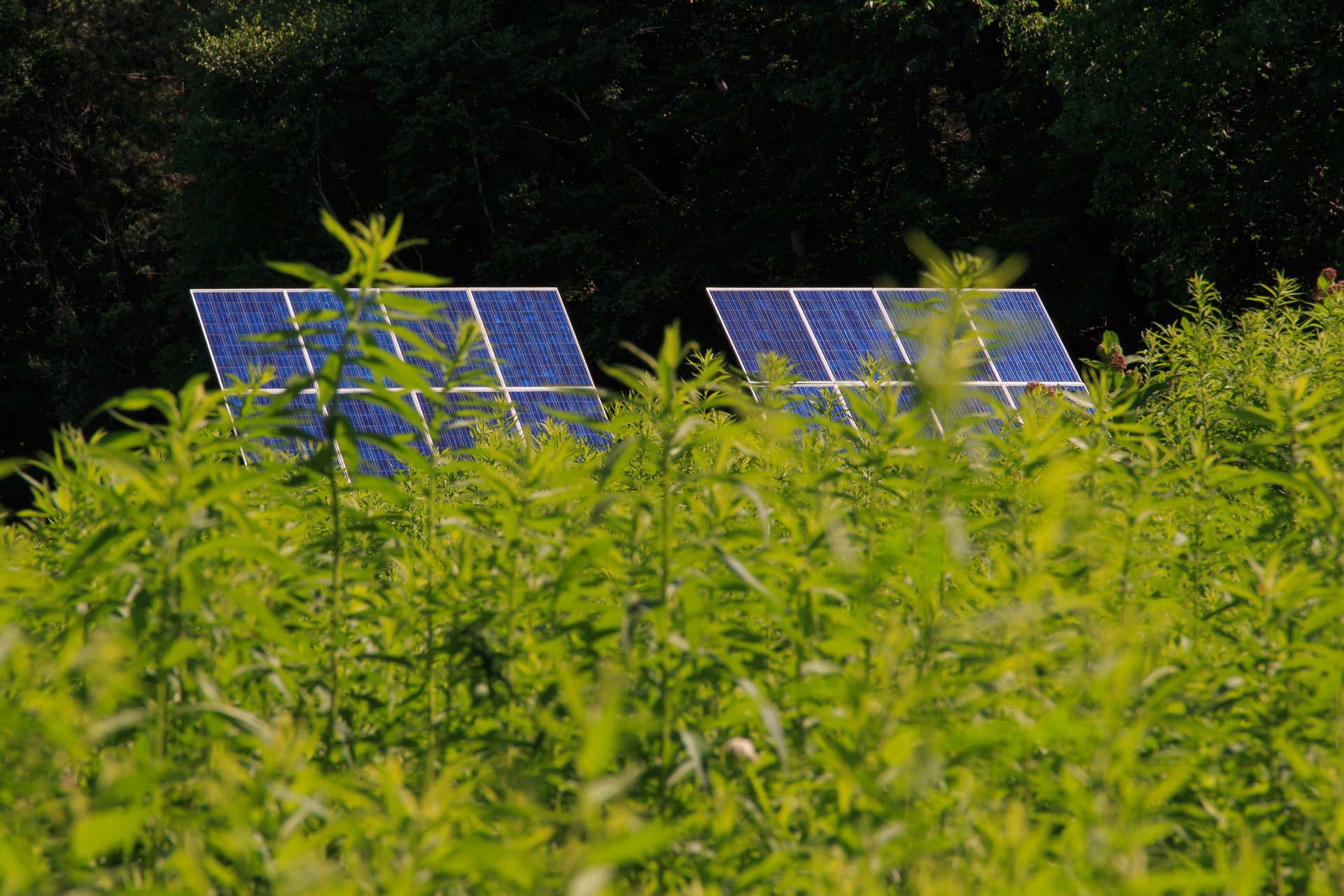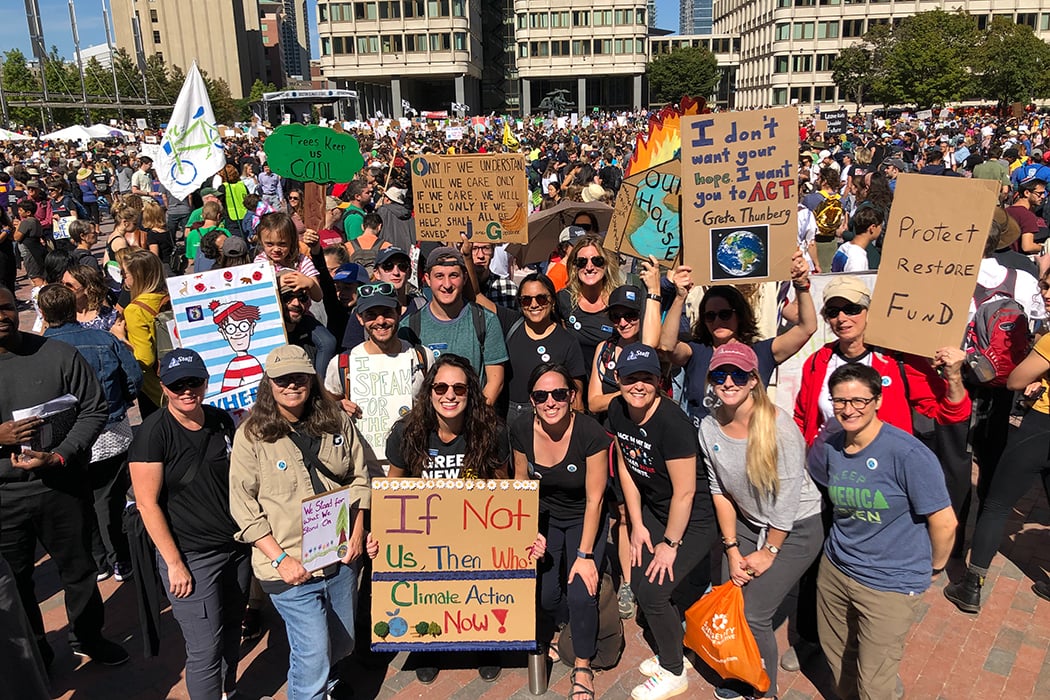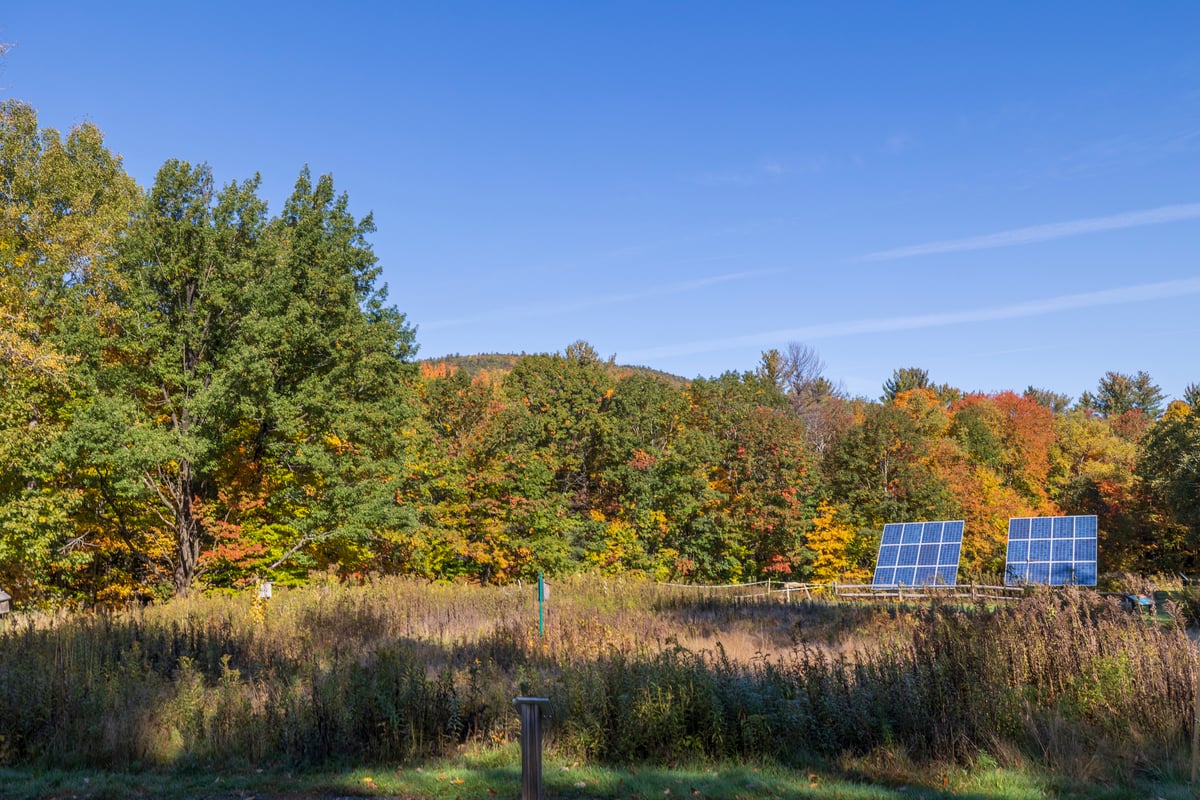Publications & Resources
Growing Solar, Protecting Nature
How Massachusetts Can Build the Solar We Need While Protecting the Nature We Have
Massachusetts needs more solar energy. To reach net-zero greenhouse gas (GHG) emissions by 2050, we’ll need five to seven times as much solar energy in 2050 as we have now. Building that solar, and quickly, is urgent in the face of the climate crisis.
Unfortunately, Massachusetts’ current pattern of solar development is causing unnecessary harm to nature. Since 2010, over 5,000 acres of natural and working lands have been destroyed for solar development in Massachusetts, resulting in the emission of over half a million metric tons of CO₂— more than the annual emissions of 100,000 passenger cars.
Every acre of forest destroyed is a huge loss for birds and other wildlife, clean air and water, natural beauty, and recreation. But most importantly, cutting forests and developing farmlands to build solar energy doesn’t make sense for the climate: natural ecosystems and farm soils absorb 10% of Massachusetts’ greenhouse gas emissions every year. Both nature conservation and solar energy must be treated as essential strategies in our response to the climate crisis.
To identify a way for Massachusetts to build the solar energy it needs and protect the nature it has, Mass Audubon teamed up with Harvard Forest to study our options for future solar development. Our results are extremely promising: with the right policy changes, we can.
Growing Solar, Protecting Nature is the result of a comprehensive economic and geospatial analysis of whether Massachusetts can meet its solar goals while protecting its most valuable natural and working lands.
Key Results
- Current solar development trends would cause the loss of 6.3 million metric tons of CO₂ by 2050— roughly equivalent to the annual CO₂ emissions of the City of Boston
- By protecting the most valuable natural and working lands from development, Massachusetts could produce enough solar energy to meet our GHG emission goals, while preserving 76% more forest carbon than our currect trajectory would predict, and protecting nearly 100% of our remaining essential wildlife habitat and prime farmland.
- Massachusetts’ rooftops and parking lots alone could support up to 30 Gigawatts of solar, and sites with low-impacts to nature and farms could support another 25 Gigawatts.
- Cities, towns, and non-profits own or manage many of the best sites for low-impact solar, creating a huge opportunity for solar development by mission-driven organizations.
Policy Recommendations
- Eliminate state incentives for solar projects on valuable natural and working lands while increasing incentives for solar on rooftops and developed lands
- Invest in reducing the labor and permitting costs of rooftop and canopy solar projects
- Support large-scale landowners in building solar on rooftops and near existing transmission infrastructure
- Launch a statewide planning effort to integrate clean energy and transmission infrastructure into the process of land development
- Fund permanent protection of Massachusetts’ highest-value natural and working lands
Learn More and Get Involved

View the Full Report
Massachusetts can build the solar energy we need while protecting the nature we have. Dig into why we think that's achievable.

Read the Executive Summary

Become a Climate and Nature Champion
Are you interested in advocating for the policy changes we need to reach our solar goals while conserving natural lands? Join our network of grassroots volunteers.
Stay Connected with Policy and Advocacy
Learn about opportunities to advocate for our transformative policy agenda



